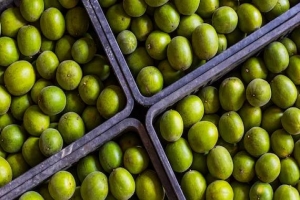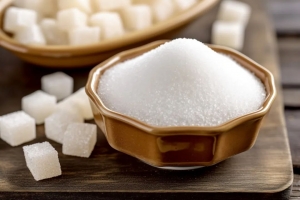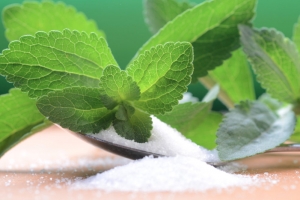In order to deeply understand consumers' views and changes on sweetness and sugar, the well-known ingredient company Kerry recently released a survey report on sweeteners and clean labels - Sensibly Sweet, Formulating for Clean Label Taste.
According to the survey, 71% of American consumers will carefully read the ingredient list of food and beverages because of "sugar", and nearly half of them hope to reduce their sugar consumption. In this new 20-page white paper, Kerry explores in detail the perception and preference of American consumers for natural and artificial sweeteners, and explores the clean label sweeteners in the minds of consumers. The research focuses on providing the manufacturing, retail and food service industries with consumers' real thoughts to cope with the future development of the food and beverage industry.

Kerry surveyed more than 760 U.S. consumers to examine their perceptions and attitudes toward 17 sweeteners across six food and beverage categories, including sports drinks, carbonated soft drinks, ice cream, flavored alcoholic beverages, nutritional bars, and cookies and cakes, to identify their preferred and ideal sweeteners.
In the study, Kerry found that 71% of consumers read the sugar content on ingredient labels, while 46% of consumers strongly want to reduce their sugar consumption. "Consumers believe that all types of food and beverages contain too much sugar, especially carbonated soft drinks, cakes, ice cream and juice. Consumers prefer to use natural and familiar sweeteners, such as products made with honey, which is a very familiar healthy food. Although honey is not low in calories, consumers show great trust in foods sweetened with honey. As consumer awareness increases, they will pay close attention to the amount of sugar they consume, especially those foods that are sweeter," the report concluded.
At the same time, ideal product formulations vary by consumer segment and category: some products require formulations with lower sugar content but the taste remains the same as before, such as carbonated beverages; while some products require formulations with lower sugar content and less sweetness, such as pastries. These choices are influenced by category, demand state, portion size, and nutritional content (such as calories and protein level).
The report also states that most consumers actively manage their sugar consumption through behavioural measures, with growing concerns about adult diabetes and childhood obesity leading to increased scrutiny of sugar and sweetness in the foods and drinks they consume.
The drawbacks of sugar and sweeteners have led to changes in consumer behavior. Not only are consumers beginning to seek clean label products, but studies have shown that when choosing sweeteners, they care about "sweetener type", followed by "grams of added sugar per serving", and then "calories per serving". For men, the type of sweetener is significantly more important (57% for men and 45% for women), and for older consumers, the grams of added sugar are more important.
The report shows that consumers have varying understandings of sweeteners, with nearly half (48%) believing that the ideal daily sugar intake is 6 to 9 teaspoons (25-38g), which is in line with the daily intake recommended by health and nutrition agencies.
The report says that compared to millennials (18-34 years old), baby boomers (35-54 years old) and Generation X (55+) are more likely to want to reduce sugar content. However, there is a disconnect between their awareness and consumption behavior. According to the USDA Economic Research Service, despite the World Health Organization and the American Heart Association recommend limiting daily added sugars to 25 grams to 36 grams, the average American consumes 19.5 teaspoons (82 grams) of added sugar per day. "This suggests that Americans are aware of the ideal daily sugar intake, however, they are not yet fully aware of the sugar content on labels," the report added.
What are sweeteners in consumers’ minds?
The report shows that honey, maple syrup, coconut sugar and agave are the sweeteners that consumers are willing to accept. "In terms of sweeteners, among 850 different product combinations based on protein content and calorie count, the preferred sweetener across all categories is honey, with a protein content of 8-10g and a calorie count of 50 kcal.
Kerry found that honey was by far the strongest driver of consumer preference, and that some other naturally derived sweeteners (maple syrup, agave, etc.) also had a positive impact on preference. Surprisingly, many other natural sweeteners (e.g. palm sugar, stevia, Monk fruit, etc.) drove negative consumer perceptions of the product, most likely due to a lack of consumer awareness of these sweeteners.
In terms of calorie counts, Kerry found that anything below 50 calories was a positive factor in driving purchases, with zero calories being the second most important factor driving purchases. For product formulators, this means that zero-calorie products are a necessity for consumers, with the goal of reducing calories as much as possible while still maintaining taste,” the report added.
 The regulation of Monk Fruit Extract (also known as Luo Han Guo extract) varies across different cou
The regulation of Monk Fruit Extract (also known as Luo Han Guo extract) varies across different cou
 Health Canada Approves Monk Fruit Extract as a Natural Sweetener
Health Canada Approves Monk Fruit Extract as a Natural Sweetener
 New Breakthrough in Allulose: A Healthier Sugar Alternative Gains Momentum
New Breakthrough in Allulose: A Healthier Sugar Alternative Gains Momentum
 Understanding Reb-M: The Benefits of a Next-Generation Sweetener
Understanding Reb-M: The Benefits of a Next-Generation Sweetener